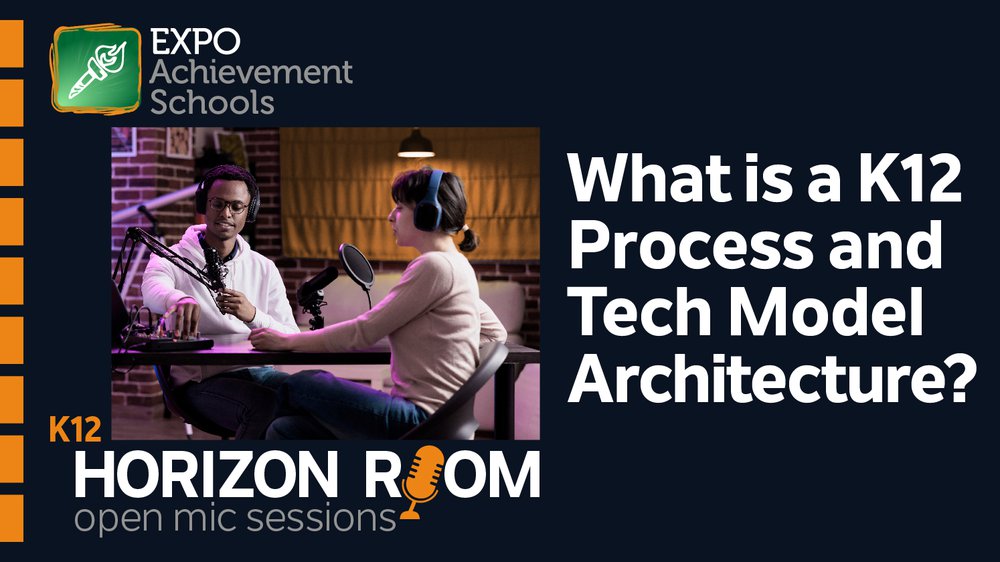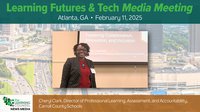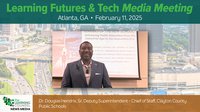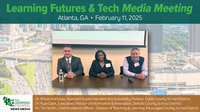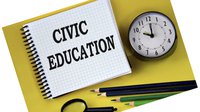By now, most of you are familiar with the Horizon Room Open Mic series. It is an opportunity for educators to be a part of a high-profile discussion on many of the important issues facing education today.
Your host, Learning Counsel Publishing and Research Chief Academic Officer Chris McMurray, brings a fun, fast-moving platform that whisks away the usual education topics to bring you real solutions being used by schools and districts today. Sitting in virtually with Chris today are two very special guests, Karla Burkholder, Director of Technology at Schertz-Cibolo-Universal City Independent School District and JW Marshall, VP Marketing at Summit K-12 and host of the Voices of eLearning podcast.
Today’s topic is K-12 Process and Technology Model Architecture. According to McMurray, “It is becoming about the tech, right? Some of the stuff we're talking about in terms of personalizing, learning, creating flexible learning experiences, different uses of space and time, all those things are reliant upon a technology foundation. Your understanding of that is critical. And it's going to be more critical as we move forward.”
“So, we toss a lot of stuff out there,” said Burkholder. “Shiny new technology software with flashy pretty graphics and stuff that make us go, Ooh. But we haven't really planned, what's the instructional value and where does this fit in our curriculum? And unless we do that and we do that well, we can't really give students the personalized pathways that they need and want. They can't really have the voice and choice that they need and want. We need to get a whole lot better at doing that, planning for technology, planning for those resources before we just toss 'em out.”
“Learn Platform has put out some research saying districts use, on average, 1500 different pieces of technology top to bottom, said Marshall. Some of those are behind the scenes technology. A lot of them are curriculum. There’s just not enough time in the day to effectively use all of those. We've been collecting programs for a decade or more and the pandemic has shown us, we don't need 1500, we need a hundred that are really good, that are implemented well, that are secure.
“I think this conversation goes hand in hand with what I've been calling for, as many others as well, this kind of audit of all things technology. The easiest ones to cut are the ones that are redundant software. Do we need 12 different reading programs? Look at what's being used and not being used, and you'd be shocked what's not being used. And then second, look at what's working and not working. You'd be shocked at what districts are continuing to use just because they've already implemented them, and the pain of changing to something else is greater than the perceived value of getting the better program into the hands of the teachers and students. I think so often we do get caught up on the top of the funnel and not the foundation, which is making sure we have the right things in place.”
This is a fascinating discussion, and there are no sacred cows in the room. The only thing that matters is how to benefit learning, and McMurray and his guests explain just how technology fits into that plan. Whether you are a tech director, a superintendent or a teacher, this episode of the Horizon Room is for you. And your learners will end up all the wiser.

